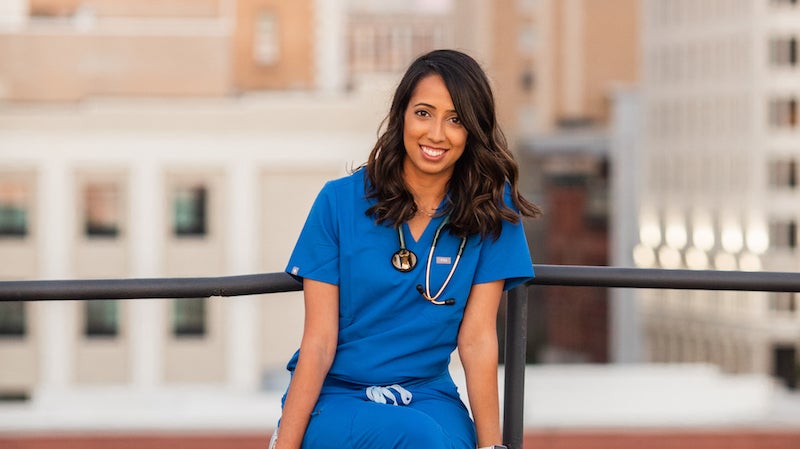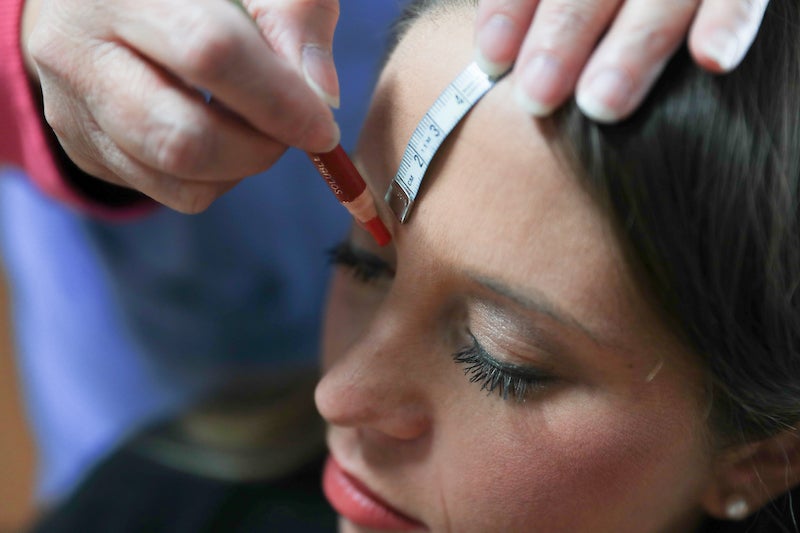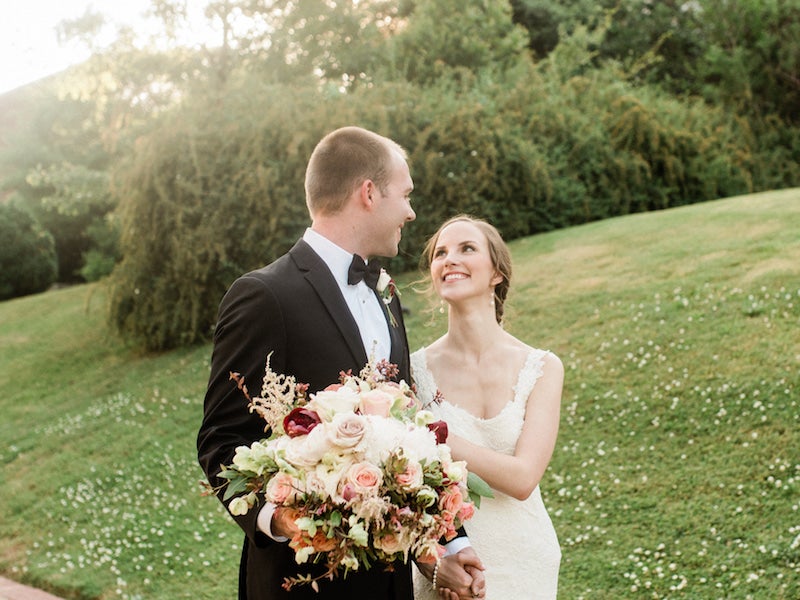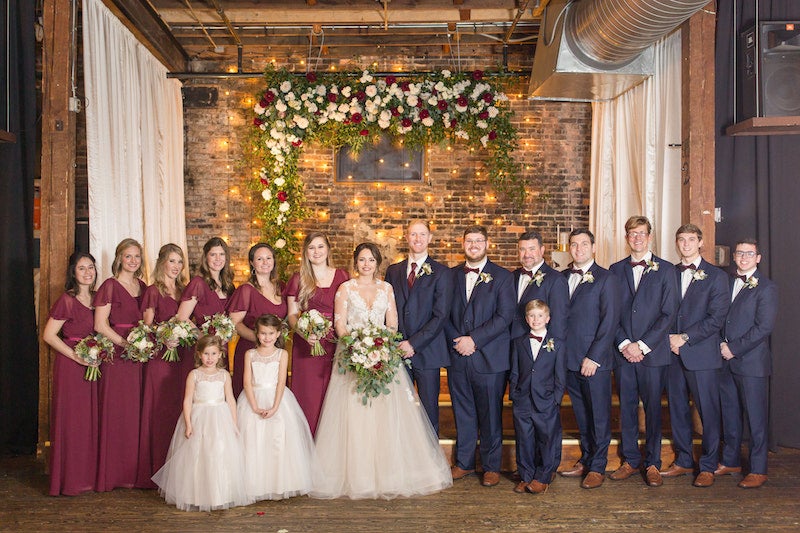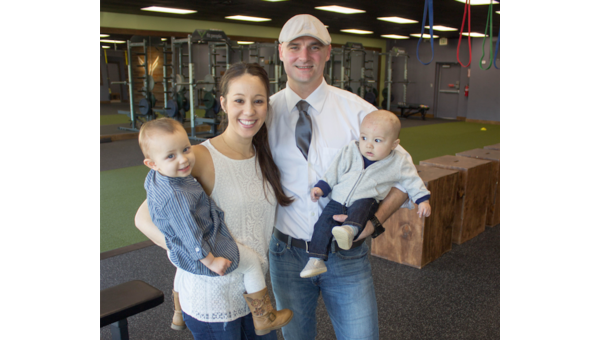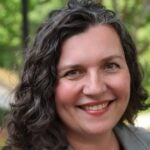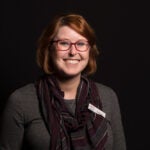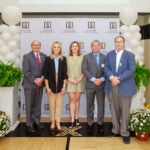By Noren Salehani
As I stepped out of the cab at my hotel in Times Square, it was like a scene from a movie but not the one you are used to seeing. There was no roar of noise when I opened the cab door, and I remember looking around to find almost no one on the streets—no tourists, no cabs, no buses, and hardly anyone on foot. This wasn’t the New York I knew and had visited before. But it was the one I had come to serve.
My journey to New York from Hoover all started with an email that arrived on Friday, April 3, with the subject “COVID-19 Update – Helping NYC.” It described an opportunity for clinicians to answer the mayor of New York City’s national call for help and provide relief to fellow clinicians working at the epicenter of the coronavirus. At the time, things in Birmingham, where I work as a physician’s assistant at Grandview Medical Center, were changing rapidly, but it was nowhere near what was being reported about the impact the virus was having on the NYC population.
The more I thought about the email and the opportunity it held, the more my mind raced. My purpose, calling and passion to serve as a physician assistant were aligned with the call for aid in that email. I had the chance to be a part of something bigger than myself. I was needed at ground zero, along with thousands of other essential workers.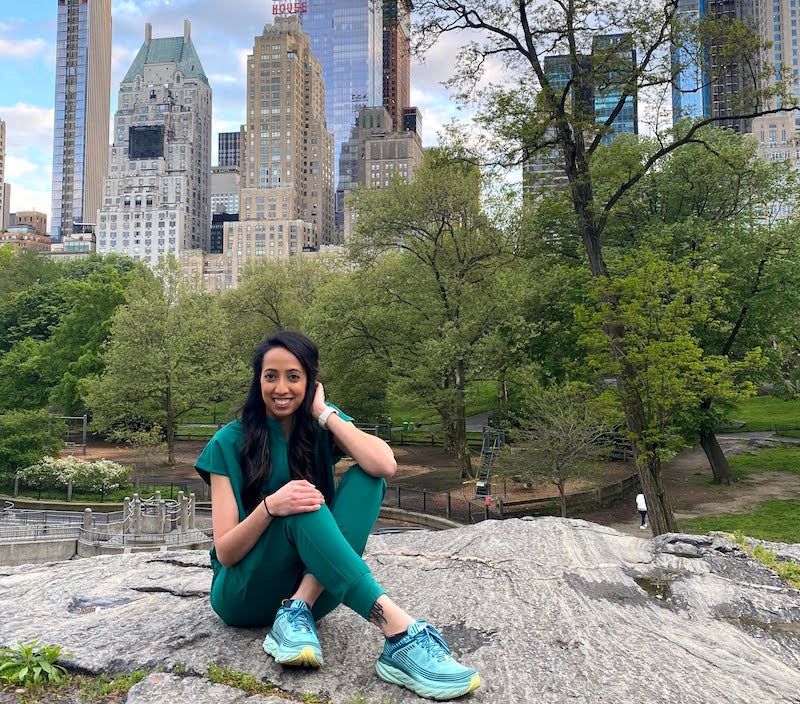
Although the opportunity was intriguing, the thought of traveling and being alone in the city made me anxious. It sounds silly, but I grew up always surrounded by a big group of family and friends. I’ve always had someone willing to take on a new adventure or travel with me. I was afraid to be away from home and to feel alone.
But I talked to my husband, siblings and parents about the opportunity, and when I reached back out to sign up, to my dismay, I was too late. The recruiter told me all the contracts were already sent but he would keep me in mind for a future opening. Twelve hours later and just when I convinced myself the opportunity was out of reach, the recruiter called and said, “Can you get on a flight tomorrow? We just had a spot open up.” I felt the anxiety creeping in, but the second time I didn’t let it hold me back and told him, “Let’s do this!”
At first, all I knew was my flight left the next day, the hotel address where I would be staying and that I would be given more instruction when I arrived in the city. I committed to going somewhere not knowing where I would be working, when I would start, how many shifts I would be assigned, or how long I would be there.
The hours between packing and arriving at the Birmingham airport were a complete whirlwind. The airport was a ghost town, and the plane had one person per row which didn’t help my anxiety. When I arrived in Charlotte for a layover, I felt a little more at ease. My parents live in the Charlotte area, so I got off the plane, went through security and visited with them in the departure area before my next flight. Spending an hour with them before my first solo adventure brought the sense of peace I needed as I boarded my second flight. Before I knew it, I landed in New York.
When I got settled in, I reached out to the contact who was in charge of my schedule for the next 30 days at Mt. Sinai Beth Israel in Manhattan as a hospitalist PA. The next day, I had orientation, and the day after was my first shift. There was no choice but to take off running, and that’s where my emergency department experience was critical as I dove straight into an unfamiliar hospital and into my hospitalist role.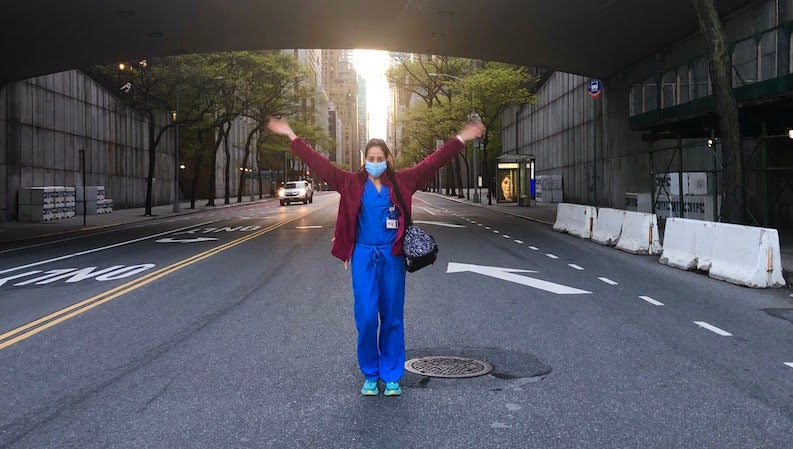
My schedule consisted of 14-hour shifts that alternated each week from day to night shifts. Needless to say, by the time I reached my first day off, the exhaustion hit me like a ton of bricks. It was a combination of physical, mental and emotional exhaustion all at once. I knew to get through the next few weeks I needed to reflect, rest and reset. This became my motto for the end of each day, whether I had a shift or a day off. Some days flew by while others dragged on; 300 hours, two floors filled then emptied, 200 patients seen with only two deaths. No matter the challenges encountered, I made it my mission to find a reason to start and end each day with a smile. After all, I was the healthy one who was lucky enough to serve those who desperately needed care.
Although I knew the hotel housed medical volunteers from all over the United States, it felt like a college dorm room without anyone to socialize with and only one microwave to share. There were nights I watched the flashing lights and billboards of Times Square from my room on the 17th floor as I drifted off to sleep. Other nights I passed out before I could pull the sheets and comforter over my body.
Most of my meals were ordered through a delivery service several hours ahead of when I would have time to eat. It was common for meal delivery or rideshare services to be abruptly canceled when the driver saw the pick-up or drop-off location was the hospital. The drivers who did arrive were covered head to toe in PPE with their car seats also fully covered and a barrier installed between the front and back. It was clear most drivers were scared, and I didn’t blame them. Life as we knew it was different and full of the unknown.
The clinical environment was very fluid. No two days were ever the same. I learned quickly to set zero expectations because it was only a matter of time before another patient with a different health condition was brought into our care. The amount of lab work I ordered for each patient was mind-boggling because of the multi-system failures the virus can cause. We worried about 30-year old patients with no pre-existing conditions having heart attacks or strokes which wasn’t something I had commonly seen before COVID-19. The younger patients took a toll on me. It was tough to see how all these critical, life-threatening conditions were possible for someone in good health and so close to my age.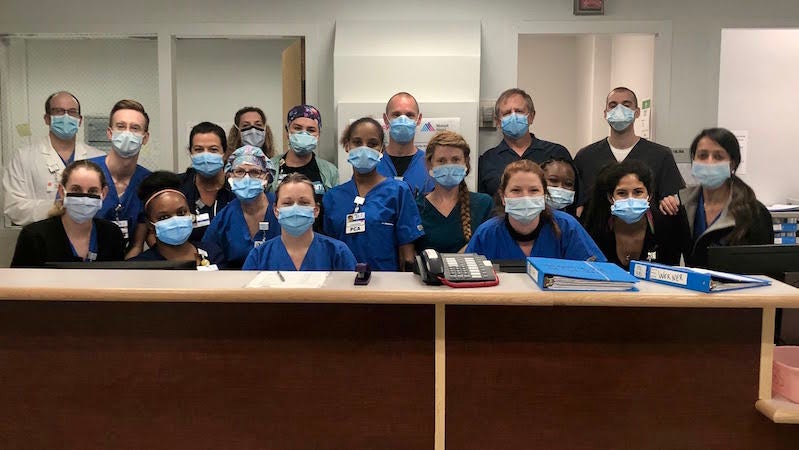
Along the way I also learned the intricacies of case management and the unique social circumstances of the New York City population. Navigating social factors like mental health, English as a second language, home health and the coordination of rehabilitative follow-up care played a huge factor in the care I provided, which was a change from my work as an emergency medicine PA.
In the ED, we are not able to spend nearly as much time with each patient as a hospitalist does. There were times I would care for the same patient up to five shifts in a row before the patient was stable enough for discharge. I constantly worried about where a patient would go after discharge and if the patient had a way to get the appropriate follow-up care he or she needed.
Celebrating small wins with each patient and acting as family support to help get the individual one step closer to home became profoundly important. My time as a hospitalist PA gave me all the tools to become more aligned with my hospital medicine colleagues in Birmingham, and for that, I am forever grateful.
One of my fondest patient memories is of a primarily Spanish speaking new mother who transferred into our care from another hospital after she spent two weeks battling coronavirus. During her battle, she lost a lot of muscle function in her legs due to deconditioning and was not able to ambulate which kept her in the hospital. She did not understand why she could not go home after receiving a negative COVID-19 test, which broke my heart. She was undocumented and uninsured, so if we discharged her, she had no way to receive the physical therapy she needed.
When she cried, I comforted her because I wanted to cry too. I consistently communicated that I was on her team, wanted her to go home as well and fought hard alongside her to get her well. After a day or two, we set up a Zoom call with her family. The joy she got from seeing her family and her child was a special memory permanently placed in my heart. The first call was the fuel she needed to get better. After seeing the difference in her motivation, I set up a daily call for her until her final day in the hospital. I truly believe interaction with her family, even if virtually, was what her heart needed to help her body heal.
Although New York City was not full of the normal hustle and bustle, crowded streets and vibrant atmosphere, it turned out to be so much more impactful. The city, Mt. Sinai team members, healthcare workers from near and far and New York City citizens radiated out love and appreciation for each other. Each night at 7 p.m. cheering erupted from balconies to thank essential workers for their service. Billboards were taken over with messages of thanks, and homemade signs filled the windows of businesses on every street. Police officers thanked us for our service each night as we left the hospital, and we returned our sentiments because they too were essential in keeping the city safe.
What I realized as my final shift rolled around was as much as my patients needed me, I also needed them and this version of a New York City experience. Being away from my loved ones was hard, but I gained more from it than I could have ever dreamed. This experience made me physically, mentally and emotionally stronger than I ever thought possible. I touched the lives of a unique population in need and filled in as the support system and family for many patients when no one else could be there. Thankfully, I came back home healthy and felt honored to contribute to a healthcare system reaching new limits of exhaustion.
I would have never imagined the words “deployment” and “Noren” would be used in the same sentence. That I, Noren Salehani, who grew up in a multi-family household, who always had someone around, would say yes to such a unique and unknown experience, but I did. I voluntarily deployed to New York City and know I am a better person and professional because of my experience treating patients at the epicenter of the coronavirus pandemic. It was an unforgettable, once-in-a-lifetime opportunity and an experience I pray will never be necessary again. But if it is, I am ready!
Editor’s Note: This article has been adapted from one that originally ran on ApolloMD’s website at apollomd.com/a-calling-to-serve-noren-salehani-pa-c/.
A COVID Update from Noren
Although I did not develop any symptoms or test positive for COVID-19 while in New York City, I did surprisingly test positive this fall in Birmingham. It’s ironic how I say “surprisingly,” as we providers in the Emergency Department evaluate coronavirus patients daily with symptoms ranging from mild flu-like features to severe acute respiratory distress. As healthcare workers, we are not immune. We have families that we come home to while praying that we don’t transmit the virus to them. In that way, we share the same fears as the general public. My own personal COVID-19 diagnosis brought this realization home for me.
Thankfully, I was able to recover fully with the support of my family and friends. My initial fears of possible complications associated with this diagnosis eventually turned into a heightened resolve to continue to support and counsel patients that I see in the Emergency Department that may be in the same situation.
As frontline healthcare workers, we have the platform to serve as role models for those around us, whether the general public, our families, or our friends. So please continue to wear your mask, adhere to social distancing guidelines and quarantine as much as possible. As COVID-19 cases rise, now more than ever we have to come together in this shared goal!
I also want to thank all my colleagues in the Emergency Medicine specialty who risk their own health and the health of their loved ones every day just by coming to work. At times it is a thankless job, but if we are able to positively impact the life of even one person each day, then it is all worth it.

